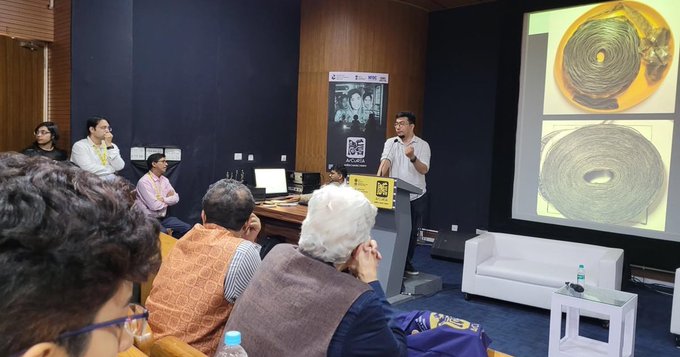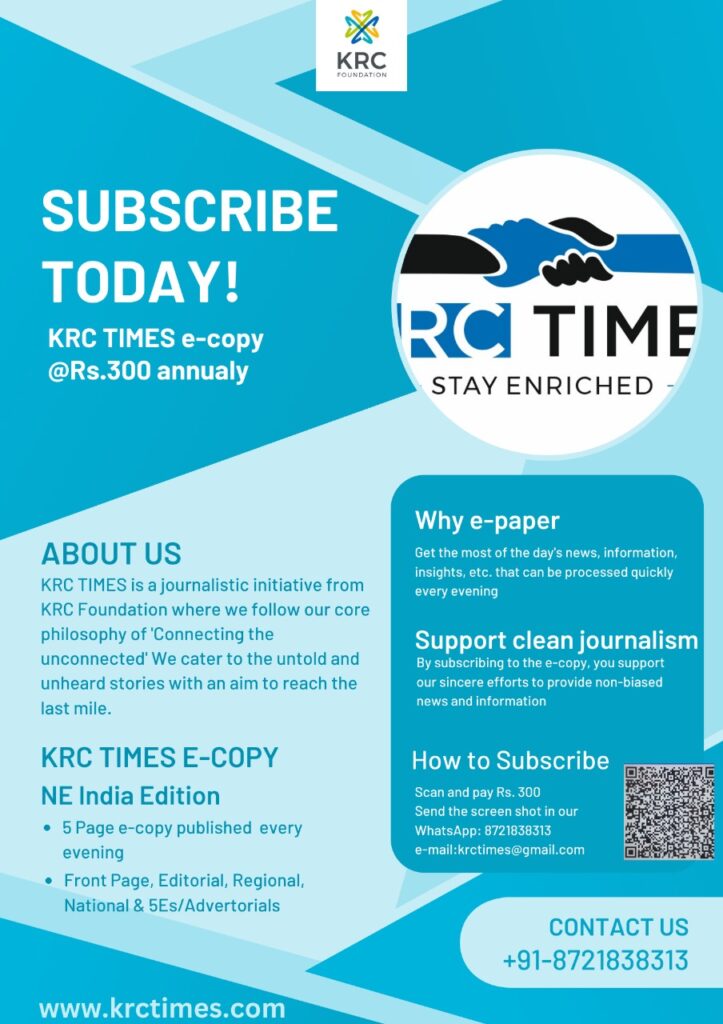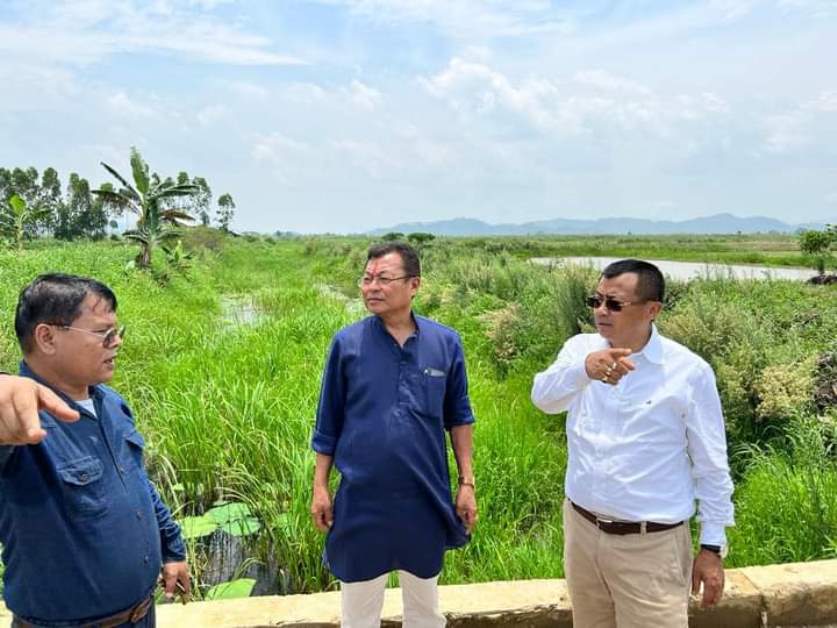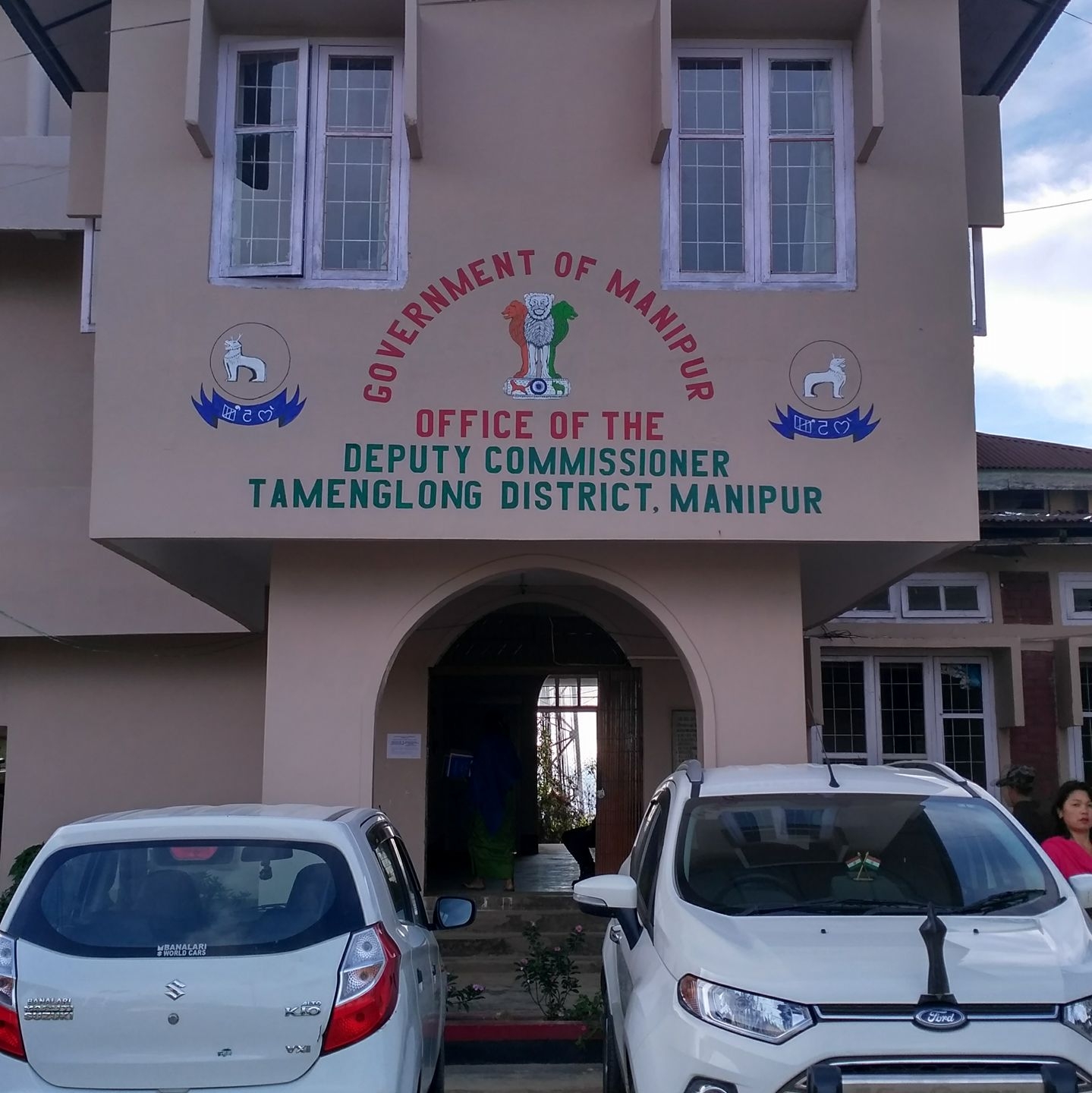ARCUREA, a prestigious 7-day global event organized by the Satyajit Ray Film and Television Institute (SRFTI) in Kolkata from March 16 to 22, 2024, stands as a significant moment for Manipur in the field of film preservation and the safeguarding of cinematic heritage, positioning the state as a leader among Indian states in this field
 KRC TIMES Manipur Bureau
KRC TIMES Manipur Bureau

Waari Singbul Network
ARCUREA, a prestigious 7-day global event organized by the Satyajit Ray Film and Television Institute (SRFTI) in Kolkata from March 16 to 22, 2024, stands as a significant moment for Manipur in the field of film preservation and the safeguarding of cinematic heritage, positioning the state as a leader among Indian states in this field. Supported by NDFC-NFAI and the Ministry of Information and Broadcasting, Government of India, this global event focused on crucial aspects of film archiving, restoration, and curation.
Among the distinguished institutions invited to contribute their insights and experiences was the SN Chand Cine Archive & Museum (SNCCAM), established by the Manipur State Film Development Society (MSFDS) under the Directorate of Art and Culture, Government of Manipur. SNCCAM shared its expertise and best practices in film archiving during the event, highlighting its innovative approaches despite financial constraints.
During the festival’s inauguration, the digitally restored Manipuri film “Ishanou” (1990), directed by Aribam Syam Sharma and jointly restored by the Film Heritage Foundation and Manipur State Film Development Society, was screened at SRFTII’s main auditorium as part of the Festival of Restored Films, showcasing Manipur’s cinematic legacy alongside timeless Indian masterpieces.
A key component of ARCUREA was a two-day international colloquium exploring film’s role as cultural heritage and delving into various facets of film restoration and archiving in the Asian region. Representing MSFDS in a session titled ‘Archiving in Government Institutions in India,’ film archivist Johnson Rajkumar presented Manipur’s remarkable efforts in preserving its cinematic past and digitizing its future. Rajkumar’s presentation shed light on SNCCAM’s achievements, including the successful 4K digitization of “Brojendragee Luhongba,” Manipur’s first film directed by a Manipuri film director, and the preservation of reels from “Mainu Pemcha” (1948), Manipur’s earliest attempt at making a feature film.
The session also unveiled plans to digitize and restore works by MK Priyobarta and Kongbrailatpam Ibohal Sharma’s 8mm actuality films in Bologna, Italy, signalling SNCCAM’s commitment to advancing its archival efforts.
This remarkable showcase of Manipur’s film preservation endeavors underscores its unique position as the only Indian state with a state-owned film archive featuring a conservation laboratory, dedicated to ensuring the preservation of deteriorating films for future generations.
In addition to SNCCAM’s contributions, presentations from Pasar Bharati and Kerala film archives further enriched the event, highlighting the collective efforts towards safeguarding India’s cinematic heritage.






